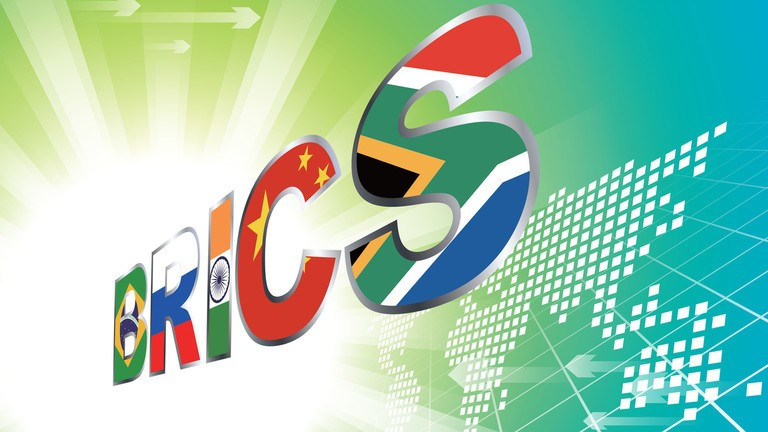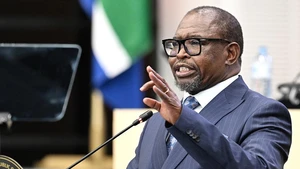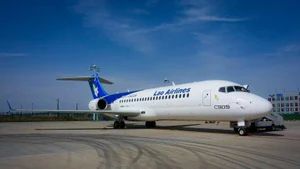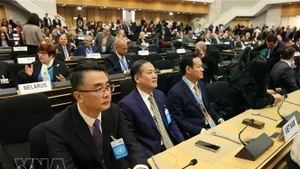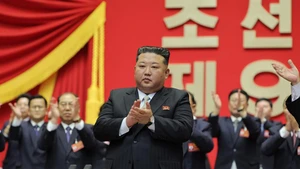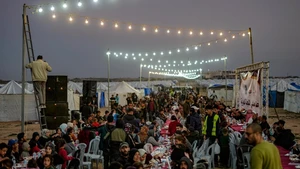With a vision of a more equitable global governance system, aiming to strengthen an inclusive multilateral system, BRICS has created a strong attraction to countries around the world, especially developing ones.
The term BRIC first appeared in a 2001 Goldman Sachs report to describe the "resurgence" of the economies of Brazil, Russia, India and China.
The leaders of the four countries met informally on the sidelines of the G8 Summit in Russia in July 2006 and held their first summit in 2009. South Africa was invited to join the bloc in 2010 and since then these five countries have made up the current BRICS bloc.
With more than 42% of the world's population, 30% of its territory, the BRICS are creating an economic bloc that accounts for about a third of the global economy. The partnership between BRICS members has grown strongly in both scope and depth. About 150 meetings are held annually on all three pillars of BRICS cooperation: politics and security, finance and economy, culture and person to person exchanges.
South Africa, the rotating President of the BRICS in 2023, has announced that it will host the bloc's 15th Summit in Johannesburg from August 22-24. The agenda of this year's summit is expected to include discussions on measures to facilitate trade and investment, sustainable development, innovation and global governance reform.
Economic relations have been concretised by BRICS members by establishing mechanisms such as the BRICS Business Council, the New Development Bank (NDB). The NDB has gradually affirmed its position as a new type of financial institution in mobilising resources for infrastructure projects and sustainable development in member countries as well as developing countries.
The NDB first expanded in 2021, with the entry of Bangladesh, Egypt, the United Arab Emirates (UAE) and Uruguay, while more countries have expressed support for the NDB's initiative to promote the use of alternative currencies in international trade.
Observers have said that the proposal to launch a new currency is unlikely to come true at this BRICS Summit. In order to create a new currency, the BRICS will need extensive negotiations and the establishment of exchange rate mechanisms consistent with the payment system and financial market regulation.
However, the “de-dollarization” momentum will continue to unite members of the bloc as well as attract the attention of developing countries in their efforts to reduce global dependence on the USD.
The admission of more members is expected to be one of the top issues on the agenda at the upcoming BRICS summit. Argentina, Iran, Saudi Arabia, UAE, Cuba, the Democratic Republic of Congo, Comoros, Gabon and Kazakhstan have all expressed their desire to join the bloc.
BRICS has not yet set specific criteria for admitting new members, but affirmed that it is carefully analysing this issue, because it is clear that the expansion will strengthen the influence of BRICS in shaping new standards and policies in global governance.
Differences in political and economic systems among BRICS members as well as rising geopolitical tensions globally are having a significant impact on the unity of the bloc's decision-making. Therefore, the BRICS Summit in South Africa at the end of August will receive special attention, because the outcome of the summit will shape the future trajectory of the bloc.
Facing many challenges, BRICS' goal of promoting cooperation to reshape the global political and economic structure continues to attract the attention of the international community.
The growing influence of the BRICS and other multilateral forums such as the G20 is proof that countries are continuing to support multilateralism and that each country can contribute to transforming the world today, said Fikile Mbalula, Secretary-General of the African National Congress (ANC).
